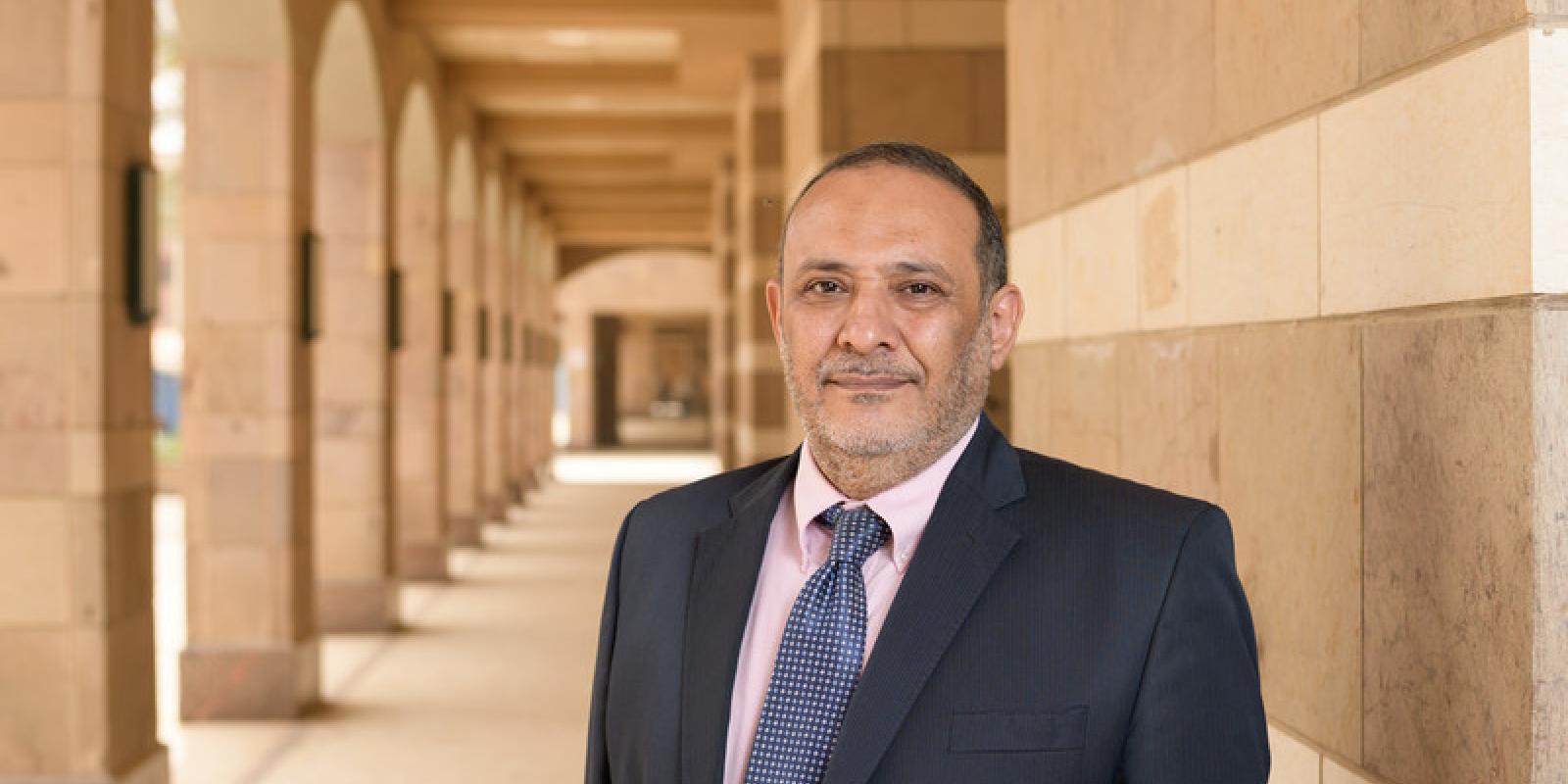
Managing AUC's Pandemic Response, One Study at a Time: Meet the Scientific Advisory Committee
Led by Hassan Azzazy, distinguished University professor and chair of the chemistry department, AUC’s Scientific Advisory Committee is guiding the University’s COVID-19 response. The committee is made up of biomedical researchers and health experts, as well as administration members.
Their job? Reviewing the vast amount of ever-changing COVID-19 information floating around cyberspace.
“We examine all credible evidence and most recent guidelines,” Azzazy explained. “We look at recommendations and guidelines from local and global organizations such as the Centers for Disease Control and Prevention, World Health Organization, the European Centre for Disease Prevention and Control, and Egypt’s Ministry of Health and Population. Most importantly, we assess scientific evidence published by top scientific journals such as NEJM, Nature, and Lancet. Finally, we look at updated guidelines implemented by universities in the United States and European Union.”
All of this information guides AUC’s coronavirus response, whereby the committee shares its recommendations with the Back to Campus Task Force to help them in using the best scientific information to inform their decisions. AUC is the first University in Egypt to make vaccination mandatory for accessing campus, masking and social distancing are being enforced, and the University offers comprehensive diagnostic and screening testing of suspected cases.
“I think AUC has done a very good job in addressing the COVID-19 pandemic. Its response is focused, proactive and timely. It is also aligned with Egypt's coronavirus response."
Alongside Azzazy, who serves as committee chair, the committee’s current members are Ahmed Moustafa, professor and chair of the biology department; Ahmed Abdellatif, assistant professor of biology; Mahmoud Shaltout, assistant professor at the Institute of Global Health and Human Ecology (IGHHE); Mohamed Salama, associate professor at IGHHE; Rachel Awad, senior director of academic affairs projects in the provost’s office; Hussam Aldine Hassan, chief health and safety officer; and Nouri Sakr ’13, assistant professor of computer science and engineering.
The committee formed as AUC was making its transition back to campus in order to keep the community safe and the campus open. Not only are its members experts at sifting through scientific information, but they are also invested in remaining on campus.
“Everyone should contribute to reducing the spread of COVID-19 by properly wearing facemasks and maintaining social distance,” Azzazy advised, warning that vaccinated individuals are still able to become infected and transmit the virus to others.
“The elderly and those with chronic diseases are more likely to suffer from serious COVID-19 outcomes including death. Thus, regardless of the vaccination status or type, everyone still needs to follow precautionary measures, especially indoors, to minimize the spread, especially to our loved ones.”
